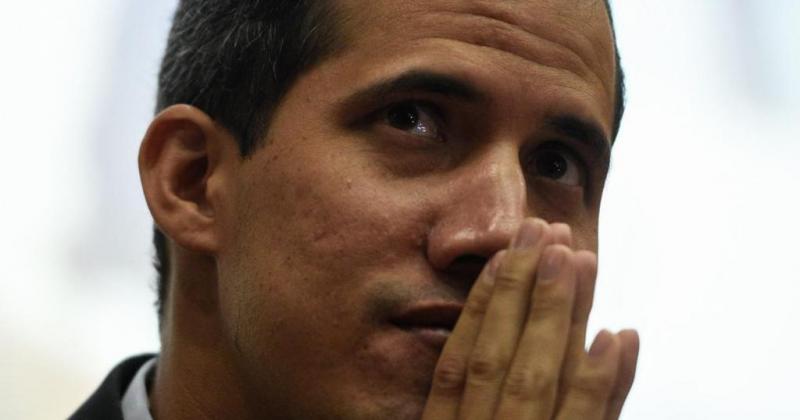I wonder if this were not the turning point for the Venezuelan crisis. Because after Maduro, now Guaidó is also asking for Pope Francis’ intervention on a mediation. And he also invited him to Caracas. Two days after the Pope himself, on the flight back from his trip to the United Arab Emirates, said that for a Vatican diplomatic intervention the will and the request of both parties would be needed first.
In an interview with Sky Tg24 the self-proclaimed president of Venezuela Juan Guaidó said: "I appeal to all those who can help us, such as the Holy Father, to work together to end the usurpation, for a transitional government, and to lead as soon as possible to truly free elections in Venezuela. I would be happy to receive the Pope in our country, a very Catholic country, very devout, of great religious tradition".
In recent days Nicolas Maduro had requested the mediation of the Pontiff, to whom he wrote a letter, as confirmed by Bergoglio himself and by the Vatican Secretary of State Cardinal Pietro Parolin.
Guaidó adds: "The dramatic thing at the moment in Venezuela is the ongoing bloodshed. On 23 January we had an unprecedented rally in our country, in 53 cities in Venezuela, millions of people hit the streets: when people were returning home, armed paramilitary groups, called Faes groups, which are a unit of the armed forces, killed many of these young people in cold blood to try to intimidate us, to frighten us". This bloodshed "is the responsibility of those usurping the presidential palace".
This morning the Vatican, through the mouth of the ad interim director of the Press Office of the Holy See Alessandro Gisotti, reiterated that "the Holy Father reserves the right to verify the will of both parties, ascertaining whether the conditions exist to go down this path".
The day before yesterday, 5 February, during the Abu Dhabi-Rome flight, the Pope, in the traditional press conference on the papal plane, made it clear that for diplomatic action by the Holy See in Venezuela the will of just one is not enough. So the letter that Maduro had sent to the Vatican was not enough: a request for intervention from Guaidó was also needed. "There are initial steps, facilitators, not only for the Vatican but in all diplomacy. This is what is done in diplomacy -he explained - I heard before the trip that a letter from Maduro was arriving with the diplomatic envelope. I haven't read it yet, we'll see what can be done". But for a mediation to take place, "it takes the will of both sides, that both sides ask for it".
Then he recalled that the Holy See "was present in Venezuela in the time of dialogue with Rodriguez Zapatero, a first meeting with Monsignor Tscherrig initially, and then continued with Monsignor Celli … and there gave birth to a mouse, nothing … smoke! Now, I do not know, I will look at that letter and I will see what can be done. But the initial conditions are that both parties ask. We are always willing”.
Already in the days when the Pope was in Panama for World Youth Day (23-28 January), in the presence of many Venezuelan boys and girls and ecclesiastical figures, he was called into question for this political-diplomatic affair. "People want to feel your support, your help and your advice," he was told. In the Central American country the Pope had asked for a just and peaceful solution, with respect for the human rights of all. Many had wondered, however, what these cautious words meant in concrete terms, and whether for Bergoglio the solution went through the recognition of Juan Guaidó. All this while the Venezuelan local Church was in the field with bishops and priests in the streets demonstrating against Maduro. The Pope had explained that "he supports all the people of Venezuela at this moment because they are suffering". If instead he had emphasized one side or the other, "I would express myself on something that I don't know", and it would be "a pastoral imprudence on my part and I would do damage". Francis had revealed that he was terrified of the possibility of a bloodbath. Then, the passage that became a clear diplomatic message: "I must be... I don't like the word, "balanced", I want to be a pastor and if there is a need for help, let them jointly ask for it". In short, what the pope is saying is that once the parties come to agree on a request for help, then he will certainly give it.
So, from here on out, it is expected that the diplomacy of the Holy See will begin to work in its own style: under track, to sew and stabilize the situation. It could happen as with the thaw between the United States and Cuba, when Barack Obama and Raul Castro agreed to have the Argentine Pope as mediator and the Vatican as the appropriate territory to place the dialogue table. And so it went: the negotiations took place secretly beyond the Tiber, and Obama and Castro, on the historic day of the announcement of the end of the crisis, December 17, 2014, did not fail to thank Francis out loud.
For Venezuela, the Holy See may have two tricks up its sleeve: Parolin, and the substitute for General Affairs Monsignor Edgar Peña Parra. The first was nuncio to Venezuela. The second is Venezuelan.
